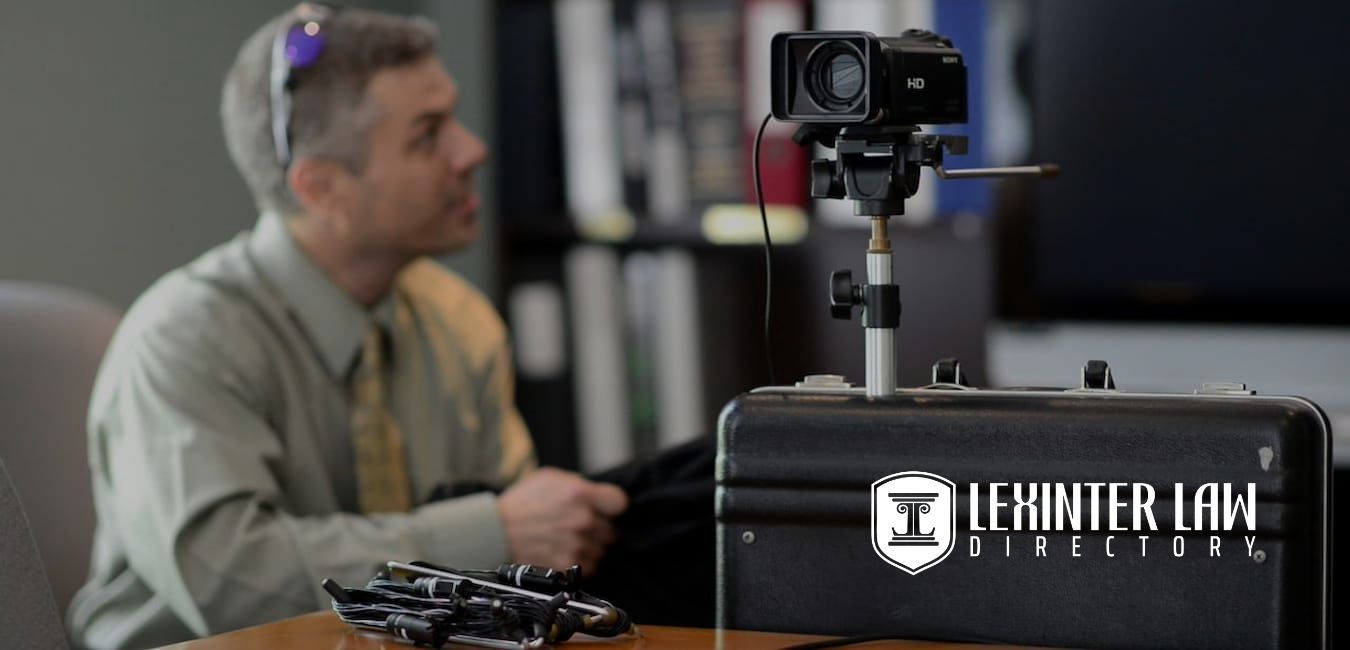Comprehending the Legalities and Advantages of Remote Depositions in Litigation
Comprehending the Legalities and Advantages of Remote Depositions in Litigation
Blog Article
Enhancing Accessibility and Security in Legal Depositions With Remote Solutions

Advantages of Remote Depositions
The benefits of conducting lawful depositions remotely are coming to be progressively apparent in today's interconnected and fast-paced world. Remote depositions offer a myriad of advantages that boost efficiency, accessibility, and cost-effectiveness in the legal industry.
Furthermore, remote depositions advertise inclusivity by ensuring that individuals with flexibility issues or those located in remote areas can quickly get involved in lawful procedures. This accessibility adds to a more equitable and varied lawful system. In addition, the usage of safe and secure online systems for remote depositions boosts information protection and confidentiality. By leveraging encrypted interaction channels and sophisticated safety and security procedures, delicate info shared throughout depositions is safeguarded from unapproved accessibility, minimizing the threat of breaches and making sure compliance with personal privacy laws.
Ensuring Data Personal Privacy
Given the sensitive nature of the information traded during remote depositions, maintaining durable data personal privacy steps is critical to copyright the honesty of legal proceedings and safeguard the privacy of all included parties. Furthermore, multi-factor verification processes can add an additional layer of safety by calling for several types of verification before giving accessibility to deposition materials.
Information privacy compliance with regulations such as the General Information Protection Regulation (GDPR) and the Health And Wellness Insurance Portability and Accountability Act (HIPAA) is vital in lawful depositions to safeguard individual information. By prioritizing data privacy in remote depositions, lawful professionals can infuse count on in the process and protect delicate details from unauthorized disclosure.
Overcoming Geographic Limitations
Successfully taking care of spatial restrictions is a crucial aspect of maximizing the logistics of lawful depositions conducted remotely. Getting rid of geographical restrictions is a key challenge in making sure that all required events, including interpreters, attorneys, and witnesses, can participate seamlessly despite their physical location. By leveraging remote deposition options, such as video clip conferencing platforms, individuals can sign up with the deposition from throughout the world, removing the need for costly travel and accommodation arrangements.
Additionally, conquering geographical restrictions enhances access for people that might encounter problems in traveling due to wellness concerns, disabilities, or other restraints. This inclusivity cultivates a much more equitable legal procedure and guarantees that all appropriate events can proactively engage in the deposition without being impeded by geographical barriers.
In addition, remote options make it possible for lawful teams to depose witnesses located in different states or countries without logistical complications. By transcending geographical boundaries, remote depositions improve the deposition process, conserving time and sources while maintaining the honesty and protection of the process.
Enhancing Witness Access
To make sure a thorough lawful deposition procedure, a concentrate on improving witness accessibility becomes crucial, developing upon the structure of getting rid of geographic restrictions with remote solutions. By making use of remote deposition technologies, witnesses can join legal proceedings from any kind of area, getting rid of the demand for considerable travel and accommodation setups. This boosted accessibility advantages not just the witnesses themselves yet additionally lawful groups and clients seeking prompt and effective deposition procedures.
Furthermore, remote options provide features such as digital waiting areas and safe online platforms, guaranteeing that witnesses feel safe and secure and comfortable throughout the deposition experience. Providing witnesses with clear guidelines on just how to gain access to and use remote deposition tools can even more enhance their access and involvement in the legal procedure.
Integrating functions like real-time transcription solutions and the capacity to share shows online can also enhance witness accessibility by promoting interaction and info sharing throughout depositions. Generally, prioritizing witness accessibility via remote solutions improves the performance, benefit, and inclusivity of the legal deposition procedure.
Implementing Secure Technology
Including modern encryption methods is crucial for ensuring the safety and security of remote deposition innovation in lawful proceedings. Remote Depositions. Safe and secure modern technology implementation plays an essential function in securing sensitive info traded throughout depositions. By utilizing durable file encryption approaches, such as end-to-end security and multi-factor verification, attorneys can reduce the dangers of unapproved gain access to and data breaches
Additionally, executing protected modern technology involves using secure communication channels and data storage space remedies to secure the honesty and discretion of deposition proceedings. Safe More Help digital conference systems with integrated safety features, such as encrypted video and sound transmission, can improve the total safety posture of remote depositions. In addition, making sure that all celebrations included in the deposition procedure follow stringent safety methods and standards is extremely important in preserving the privacy and integrity of the lawful procedures.

Final Thought
To conclude, remote deposition services supply many advantages such as raised availability and safety and security. By leveraging technology, lawful process can be conducted effectively while making certain the privacy of sensitive data. Getting rid of geographical restrictions allows for more comprehensive participation and much easier accessibility to witnesses. Carrying out safe and secure innovation is important to preserve discretion and protect the stability of the lawful process. Overall, remote options improve the total experience of lawful depositions for all celebrations involved.

To guarantee a comprehensive legal deposition process, a focus on enhancing witness access becomes imperative, building upon the foundation of overcoming geographical limitations through remote solutions.Including state-of-the-art file encryption protocols is crucial for ensuring the protection of remote deposition innovation in legal process.
Report this page